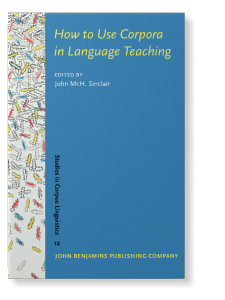
Q: How much should a discourse analyst know before he or she engages in corpus work?
A: I don’t agree with the presupposition. No discourse analyst needs to know anything doing Corpus Linguistics. What they need (for either) is an open mind, a willingness to learn, to take risks, to make mistakes, to ask for help or find it for themselves. There is not just one way of slicing bread, and the CL ways of slicing it are not necessarily superior to non-CL ways.
Mike Scott, Viana, Zyngier & Barnbrook (2011: 218)

